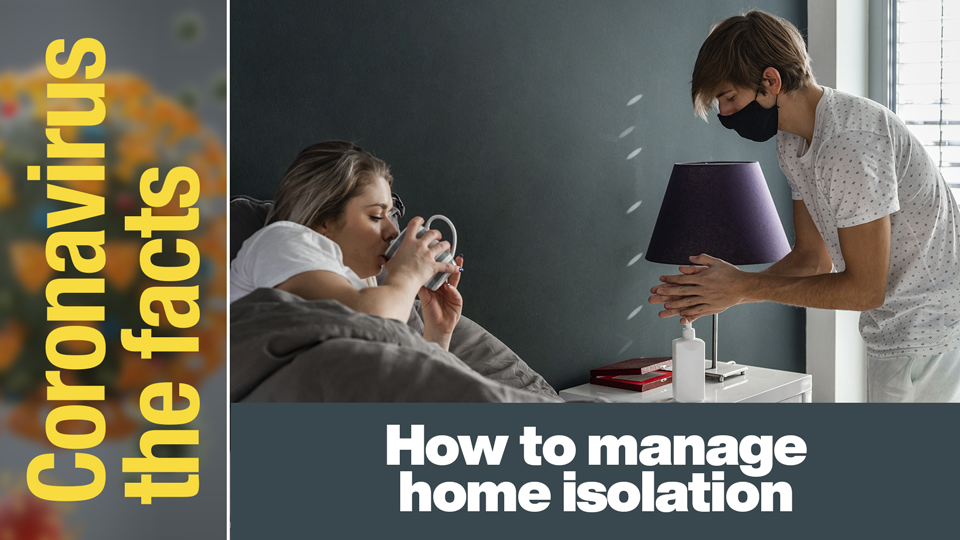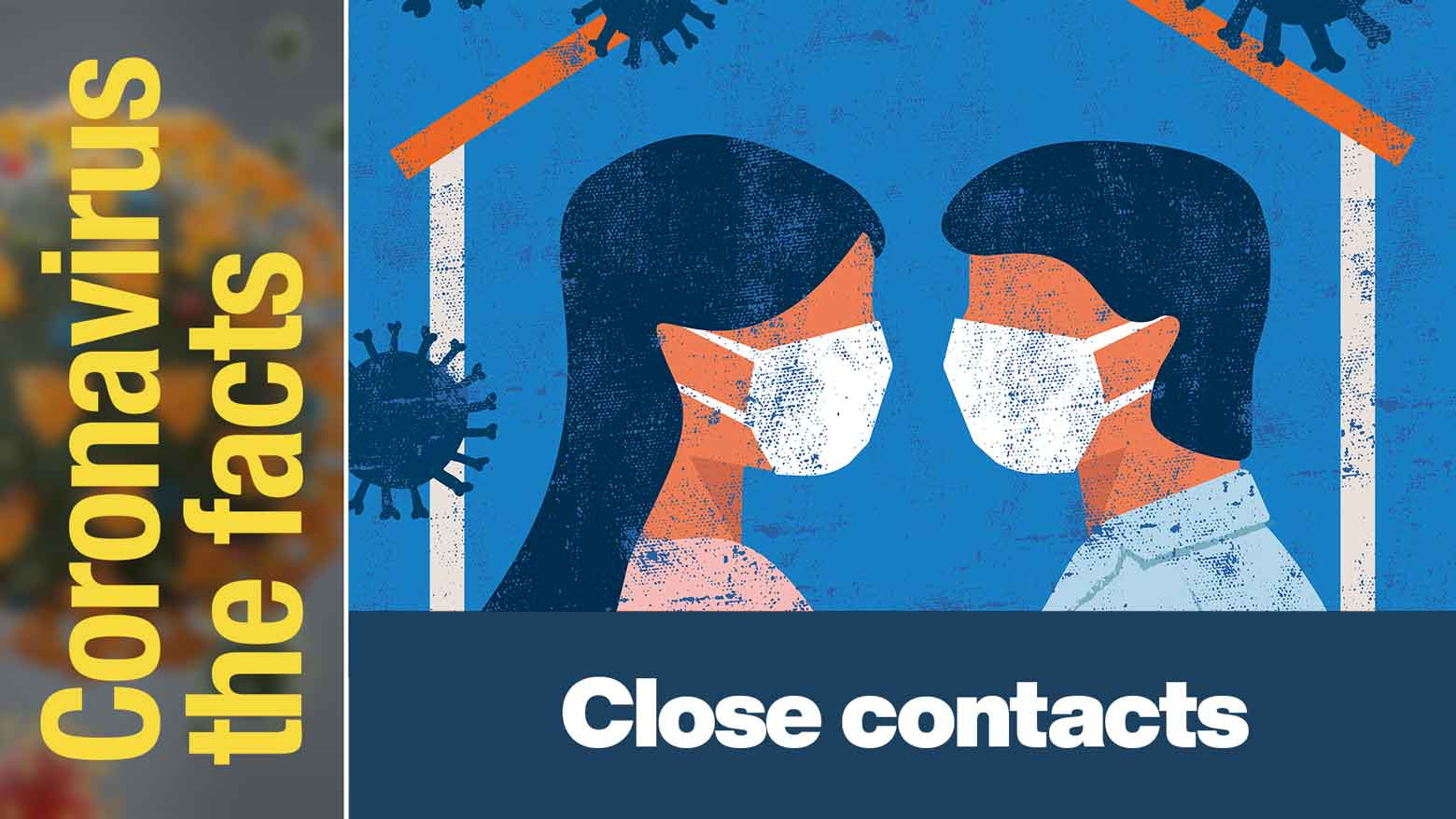This is our series on key coronavirus-related information. Click here to read other installments: #Coronavirus the facts. Find the latest information and answers from experts on everything COVID-19.
A close contact is a person who has either been in very close proximity with someone infected with COVID-19, or spent a prolonged period near them. Health authorities in Japan say people can be contagious from two days before developing symptoms until 10 days after. If they are asymptomatic, they can be contagious from two days before their test until seven days after.
Who is considered a close contact
- Anyone not wearing a mask who touches an infected person or spends at least 15 minutes within arm's reach of one
- Anyone who touches the bodily fluid of an infected person
- Usually, anyone living with and taking care of an infected relative
Cases not considered close contacts
- When stringent anti-infection measures are in place, such as those in medical or senior care facilities
- Even spending 15 minutes in the proximity of an infected person may not count as having close contact. Ultimately, the decision will depend on various circumstances of the contact situation, such as activity and the level of ventilation.
The Tokyo Metropolitan Government website offers more details about the criteria:
https://www.fukushihoken.metro.tokyo.lg.jp/tamafuchu/shingata_corona/corona_sesshoku.html
Who decides?
In principle, local healthcare centers are responsible for determining whether someone should be considered a close contact. But in situations where the virus is spreading fast, local governments can expedite the process by setting simple criteria for people to follow.
Osaka Prefecture, for example, says anyone living with someone infected should automatically consider themselves a close contact. Schools and companies are allowed to determine which students or employees fit the criteria. And infected people can themselves determine whether others are their close contacts.
Isolation period
Japan's health ministry has shortened the isolation period of a close contact from 14 days to seven, based on the latest scientific knowledge about the incubation period of the Omicron variant. The day of contact with an infected person is set as day zero. Starting from the next day, the close contact must isolate at home for seven days.
If the infected person is part of the same household, day zero is the day the person developed symptoms, the day of their test if they are asymptomatic, or the first day of implementing anti-infection measures—whichever is latest. If another member of the household is infected in those seven days, the clock is reset to day zero.
The isolation period can be shortened for essential workers such as medical staff, who can finish on the fifth day if they get a negative result using Japan's government-certified antigen test kits on both the fourth and fifth days.
Take anti-infection measures for 10 days
According to the National Institute of Infectious Diseases, among people infected with the Omicron variant who are symptomatic, 94.5% could develop their symptoms within the first seven days, meaning about 5% could first show symptoms after the seventh day. Based on that research, the health ministry is asking close contacts to continue taking anti-infection measures until the tenth day, even after leaving isolation.

Click here to learn more about tips for at-home care and limiting the spread of infection.
This information is accurate as of February 18, 2022.
